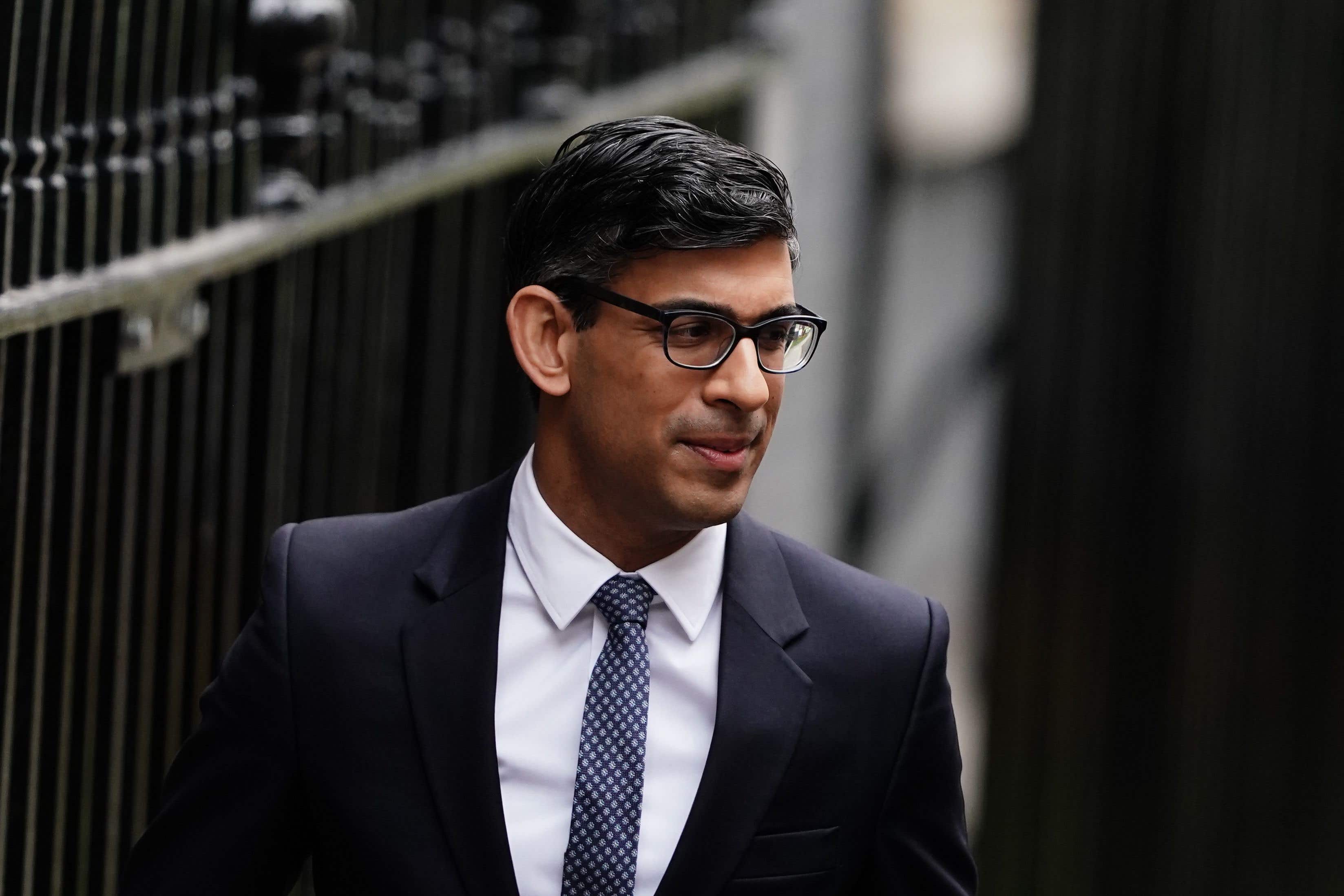Rishi Sunak promises crackdown on grooming gangs with new police taskforce
Prime minister to travel to northern England on Monday to announce the measures

Prime Minister Rishi Sunak has pledged that “political correctness” will not get in the way of a crackdown on grooming gangs, as ministers promised tougher sentences and new support for local forces to protect children from abuse.
Mr Sunak will travel to northern England on Monday to announce a new set of measures the government says will protect young women and girls from sexual abuse, which will also see ethnicity data used to support police investigations.
Part of the plan will see specialist officers assist local police forces to solve child sexual exploitation investigations as part of a new grooming gangs taskforce, as Mr Sunak warned that for too long “political correctness has stopped us from weeding out vile criminals who prey on children and young women”.
He vowed: “We will stop at nothing to stamp out these dangerous gangs.”
The new taskforce, the government said, would be led by police and supported by the National Crime Agency, with membership made up of officers with “extensive experience” of undertaking investigations into grooming gangs.
The plan will also see ethnicity data used to assist the police in investigating grooming gangs, something ministers will argue is necessary to ensure “cultural sensitivities” are not used to prevent criminals being caught.
Home secretary Suella Braverman on Sunday singled out British -Pakistani men over concerns about grooming gangs as she accused authorities of turning a “blind eye” to signs of abuse over fears of being labelled “racist” or “bigoted”.
It came as she announced plans for a consultation on introducing a mandatory duty on professionals working with children to report concerns about sexual abuse.
Mr Sunak will also say that grooming gang members and leaders will receive the toughest sentences possible, with the introduction of new legislation that would make membership an aggravated factor in sentencing.
Justice secretary Dominic Raab said: “Grooming gangs are a scourge on our society and I want to send a clear message to anyone who exploits vulnerable children that they will face the full weight of the law.
“This builds on the extensive action this government has already taken to introduce tougher sentencing, and the reforms introduced last week in the Victims and Prisoners Bill to keep the most dangerous offenders behind bars, while making sure victims get the support they need at all times.”
The announcements come after the Independent Inquiry into Child Sexual Abuse last year described sexual abuse of children as an “epidemic that leaves tens of thousands of victims in its poisonous wake”.
The seven-year inquiry into institutional failings in England and Wales concluded that people in positions of trust should be compelled by law to report child sexual abuse.
Professor Alexis Jay, who chaired the inquiry, welcomed the announcements.
“The commitment to mandatory reporting is very encouraging, and I look forward to working with the government to ensure that the full package of the inquiry’s recommendations in its final report is taken forward to better protect children from sexual abuse in the future.”
Ministers have said they will also provide extra support for the NSPCC’s whistleblowing helpline.
Labour said it had long called for mandatory reporting, labelling the government response “hopelessly inadequate”.
Shadow home secretary Yvette Cooper said: “Ministers have known about the role of organised gangs in child exploitation for years – yet when Labour called for mandatory reporting and expanded police specialist teams nearly a decade ago, they failed to act and have dragged their heels ever since.
“Only 11 cent of child sexual abuse cases ends with a charge – down from 32 per cent seven years ago, and the court delays have got far worse with victims waiting years for justice.
“Short term headlines aren’t enough. We need a comprehensive plan that listens to survivors and victims and properly tackles child exploitation and abuse, including online, to keep children safe.”
Sir Peter Wanless, NSPCC chief executive, welcomed the government’s announcement, but added that “perpetrators do not just come from one background”.
He also said that the plan had to be “backed up with funding for services to help child victims recover and support for a justice system that is struggling to cope”.
He added: “Sexual predators will target the most vulnerable and accessible children in society and there must be a focus on more than just race so we do not create new blindspots that prevent victims from being identified.
“Better data collection by law enforcement as part of the package of measures announced today would help ensure all those working to protect children have a clearer, evidence-based understanding of child sexual abuse and exploitation so it can be tackled more effectively.”
Children’s Commissioner for England Dame Rachel de Souza also welcomed the plans, but urged the government to “extend this same focus to children arriving in the UK who often face similar dangers”.
She said: “Any measures designed to make children safer, no matter their background or circumstances, are a positive step, so I’m pleased to see the commitment to taking forward recommendations from the Independent Inquiry into Child Sexual Abuse.
“This must go hand in hand with reforms to children’s social care, putting children’s experiences and voices at the heart of the system and ensuring they feel able to confide in the adults they trust to protect them, who in turn will be supported to keep them safe. I look forward to seeing the full details of these proposals.”





